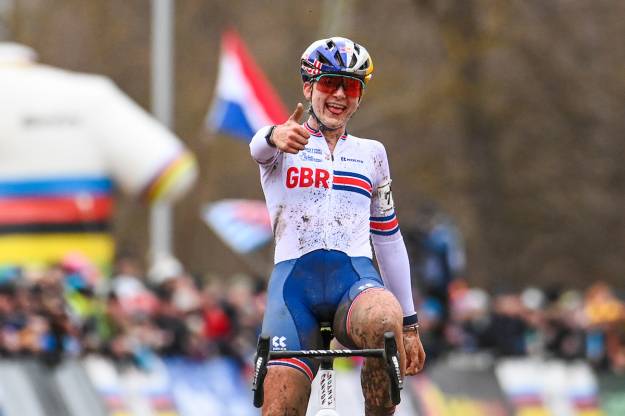![]() Published: 13 February 2012
Published: 13 February 2012
Report: Scott Hobro
2011-2012 UCI Track Cycling World Cup homepage |
Great Britain Olympic Programme Track Sprint Coach Iain Dyer has acknowledged that riders should be approaching top form at the London Track World Cup but stressed that sprinters ‘peak in different ways’.
The Olympic test event at the London Velodrome between 16-19 February will conclude the season’s UCI Track World Cup and leave April’s world championships in Melbourne as the last major event before the London Games. Dyer, who has been part of the Great Britain setup through both the Athens and Beijing Olympics, believes that regardless of the location events are naturally gaining significance as summer approaches.
“If you break it down into its logically component parts it’s no more important than any other Olympic qualifying event but inevitably it carries extra significance because it has this test event role to it as well. Having been down to the track and having seen the similarities compared to Manchester and Newport, it’s clear that the track doesn’t hold any great secrets so it doesn’t hold any extra significance for us on a technical perspective,” Dyer said.
|
“If you break it down into its logically component parts it’s no more important than any other Olympic qualifying event but inevitably it carries extra significance because it has this test event role to it as well. " Iain Dyer |
||
“I think most of the World Cup events approaching the end of the Olympic cycle begin to carry more significance because riders form is approaching fruition and it won’t be long until the world championships follow then of course the Olympics. Irrespective of where that last world cup may be, that latter one is approaching the point where the riders are beginning to fine tune their form and are a significant amount of the way there in their training and their progression in that cycle - so from that point of view it should be a significant event. It wouldn’t matter whether that was in London, Beijing or Columbia.”
But Dyer was also keen to point out that there is still time post test event for riders to find a late surge in form. He highlighted the 2008 world championships in Manchester, in which Great Britain finished second in the team sprint to France by over half a second in March before taking gold in Beijing - and with it setting a new world record time of 42.950 seconds, only recently broken by Germany.
“We know from past experience they can definitely turn it around. Only the other day I was looking at some data we had from the Beijing test event in the run up to the Beijing Olympics were it occupied a world cup spot and when you look at where we were in that point in time and were we ended up there was a massive gulf in performance,” Dyer commented.
“In fact if you look at our men’s team sprint performance at the worlds [in 2008] we were nearly half a second down on the French. We not only overhauled them but established a new world record by the time we got to the Olympics.
“Generally speaking I think those circumstance were fairly exceptional and as we get to the latter part of the season I’d like to start to see areas where riders are ticking as many boxes as possible and are a long way down the line. Sprinters do taper and they do peak in different ways.
"Some people maintain a very high performance level throughout the season then find just a little bit extra at the end whereas other riders, maybe significantly compressed by their training loads, find lots in a short space of time when there is enough rest and recovery - you do get these last minute fluctuations in form. What I will be looking for and perhaps something a spectator might not see is data analysis to know whether we are on track. I am looking at those details which might be different from the bottom line time or position in the race.”









